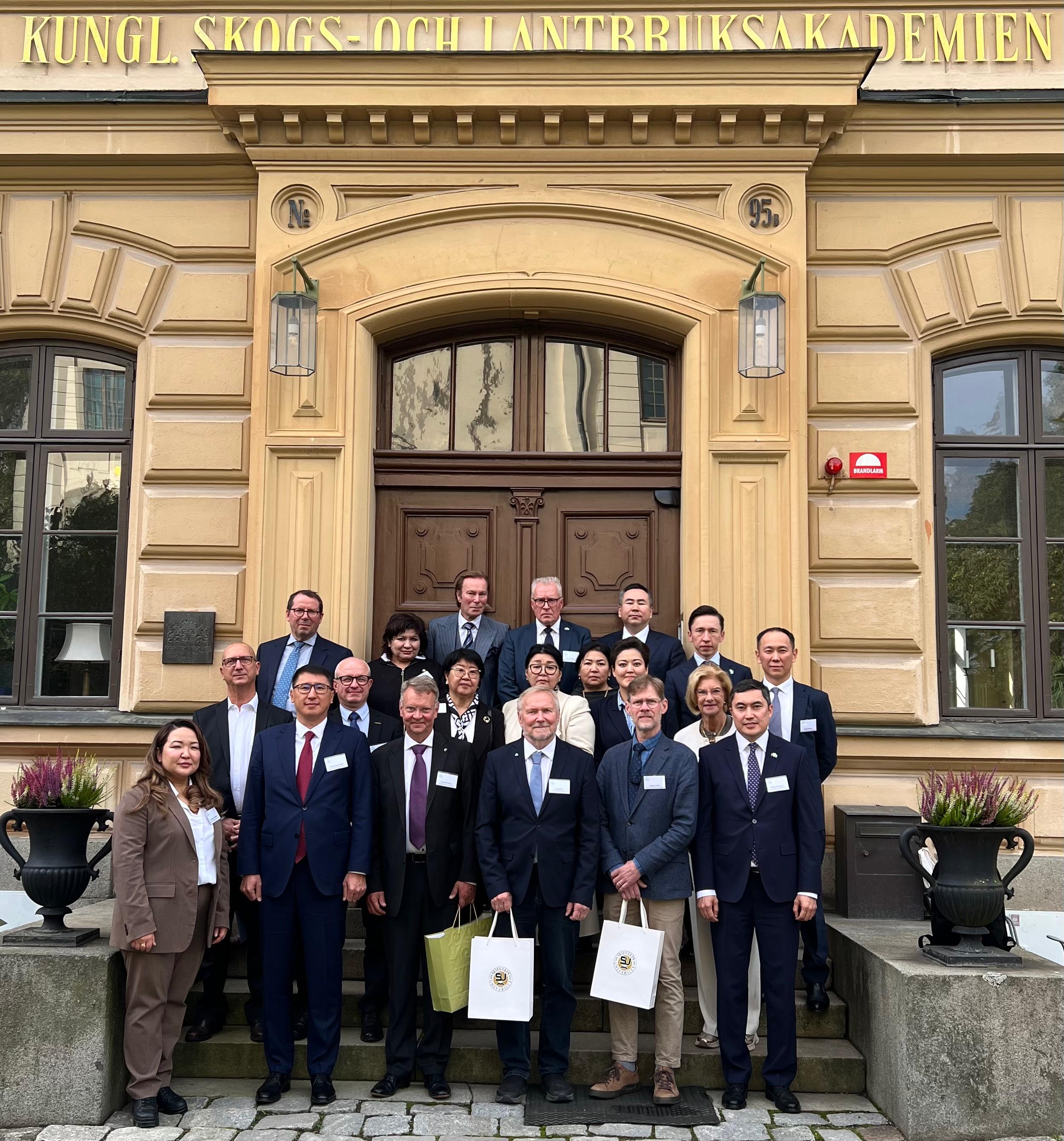Ways to Advance Further Cooperation with Kazakhstan in the Agricultural Sector Discussed in Sweden

Stockholm, 2 October 2025 – A Kazakh-Swedish Round Table was held at the Royal Swedish Academy of Agriculture and Forestry (KSLA), co-organized by the Embassy of Kazakhstan in Sweden and the Academy. The event brought together representatives of government institutions, academia, and the business community of both countries, providing a platform to discuss cooperation in the agro-industrial sector, innovation, and sustainable agriculture. The session was moderated by Kenneth Alness, Managing Director of Acanova AB and Member of the KSLA.
In his opening remarks, Professor Jan Stenlid, Vice President of KSLA, outlined the Academy’s mission to advance agriculture and forestry through science and practical knowledge for the benefit of society. He emphasized the importance of the round table as a forum for sharing knowledge and best practices.
Vice Minister of Agriculture of Kazakhstan Yerbol Taszhurekov, who is on a working visit to Sweden, delivered a presentation on the agricultural policy priorities of Kazakhstan, as outlined in the Address to the Nation by President Kassym-Jomart Tokayev. He stressed that the agro-industrial complex is viewed as one of the strategic drivers of national development. The Vice Minister expressed interest in expanding cooperation with Swedish companies and research institutions, noting that combining Sweden’s technological leadership with Kazakhstan’s vast potential could help build a modern and sustainable agricultural model capable of contributing to global food security.
In his remarks, Anders Drottja, Political Adviser to the Swedish Minister for Rural Affairs, highlighted the Swedish government’s priorities in enhancing the competitiveness and resilience of the agricultural sector through innovation, entrepreneurship, and investment. He emphasized the value of international knowledge exchange and expressed particular interest in the presentations from Kazakhstan’s academic institutions.
Ambassador of Kazakhstan to Sweden Olzhas Suleimenov noted that Kazakhstan is implementing an ambitious modernization programme focused on digitalization, sustainable development, and integration into global production and logistics chains. In this context, a new Ministry for Artificial Intelligence and Digital Development has been established, high-tech projects in rare earth metals are being launched, a unified digital land resources map is being developed, the Trans-Caspian International Transport Route is expanding, and preparations are underway for the construction of a nuclear power plant.
The Kazakh Ambassador also stressed that, alongside economic transformation, President Tokayev has initiated a new phase of political reform, including a proposal to transition to a unicameral parliament, which will be submitted to a nationwide referendum in 2027.
Heinz Sjogren, Chair of the Swedish Chamber of Commerce for Eurasia, highlighted the significant potential for expanding Kazakhstan–Sweden cooperation in the agro-industrial sector. He underscored the importance of creating conditions that support the entry of small and medium-sized enterprises (SMEs) into the market, as they can play a vital role in advancing the sector technologically.
Ulbossyn Sarybayeva, Kazakhstan’s overseas representative of Kazakh Invest in Sweden, provided a detailed overview of government support measures aimed at improving the investment climate and presented a number of specific agro-industrial projects open to foreign participation.
Separate presentations were also delivered by representatives of the S.Seifullin Kazakh Agrotechnical Research University and the Kazakh Research Institute of Agriculture and Plant Growing.
The round table served as an important platform for knowledge exchange, showcasing Kazakhstan’s potential, and identifying new areas for cooperation in the agricultural sphere. The discussion of the President’s Address and the open dialogue between participants laid the foundation for expanded interaction and the implementation of joint projects in agricultural innovation and sustainable farming.